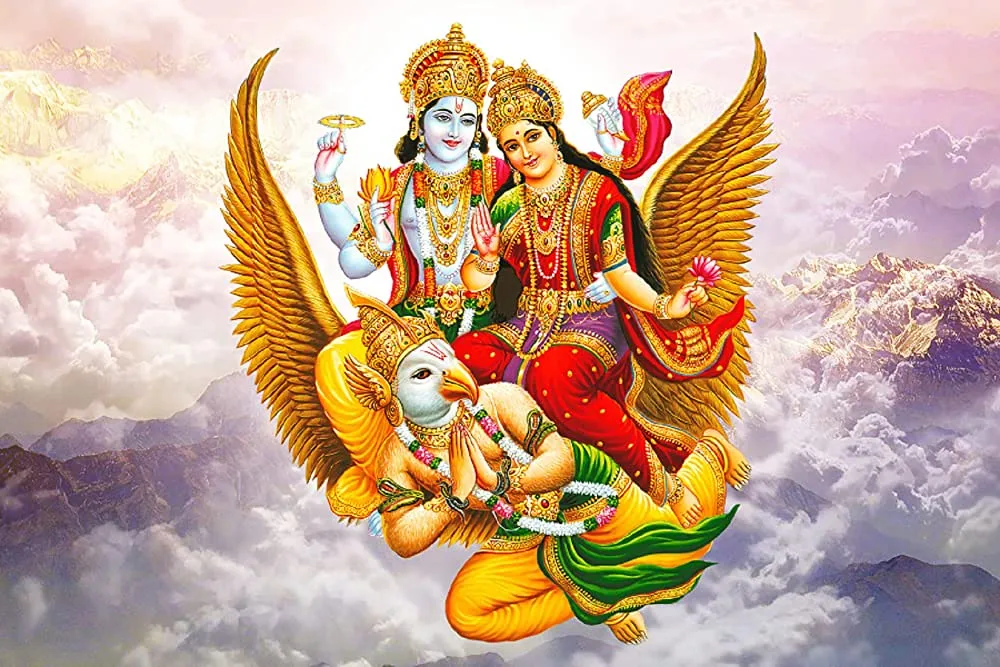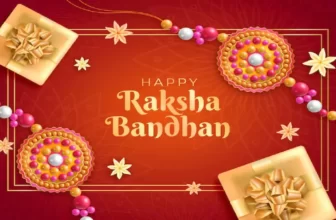
Nirjala Ekadashi is one of the most significant and challenging fasts observed by devout Hindus.
It falls on the 11th day (Ekadashi) of the waxing and waning phases of the moon in the Hindu month of Jyeshtha. Nirjala Ekadashi involves a complete fast from both food and water.
In this blog post, we will explore the significance, rituals, and benefits of Nirjala Ekadashi fast, providing an in-depth understanding of this sacred observance.
From a physical perspective, Nirjala Ekadashi allows the body to detoxify and rejuvenate. The complete abstinence from food and water facilitates internal cleansing, aiding in the elimination of toxins and promoting overall well-being.

The Significance of Nirjala Ekadashi
Nirjala Ekadashi falls on the eleventh day of the waxing phase of the Hindu month of Jyeshtha (May-June).
It is considered the most austere and challenging of all Ekadashi fasts.
The term “Nirjala” translates to “without water” in Sanskrit, indicating that devotees abstain from consuming food and water throughout the day and night.
Check out the Top collection of Imitation Jewelry
The uniqueness of this Ekadashi fast lies in the strict prohibition of water consumption throughout the day.
Devotees who observe this fast believe that by doing so, they can receive the same spiritual benefits as observed by fasting on all the 24 Ekadashis of the year.
This stringent fast is believed to grant the same benefits as observing all the other Ekadashi fasts throughout the year.
Mythology of Nirjala Ekadashi
According to mythology, the story of Nirjala Ekadashi is found in the context of Mahabharata, which is as follows. Maharishi Ved Vyas got all the Pandavas to make a resolution of Ekadashi fast for attaining Dharma, Artha, Kama and Moksha.
Now everyone including Mata Kunti and Draupadi observes Ekadashi fast but Bhima who was very famous in mace wielding and eating food. It means to say that Bhima was very huge and powerful but he used to feel very hungry.
His hunger was beyond tolerance so it was very difficult for him to fast for two days in a month. When the whole family started pressuring him to fast, he started looking for a way that he would not have to starve and also get the virtue of fasting.

He also learned the solution of this calamity that came upon his stomach from Maharishi Ved Vyas. Bhim started asking, O father, all the members of my family keep fast on Ekadashi and put pressure on me too, but I can do religious work, worship, do charity, but keeping fast is not a matter of my ability.
There is a gastric fire called Vrik inside my stomach, to calm it, I need a lot of food, so I cannot live without food.
Then Vyas ji said, Bhim if you believe in heaven and hell, then it is necessary for you also to observe this fast.
Bhima’s concern increased even more on this, he said Vyas ji, O Maharishi, please tell me such a fast, which can be attained salvation only by observing it once in a year.
On this, Maharishi Ved Vyas said to Gadadhari Bhima that O Vats, this fast is very difficult, but by keeping it, you will get the result of fasting of all Ekadashis.
He said that Lord Shri Krishna himself told me about the virtue of this fast. You fast on the Ekadashi of Shukla Paksha of Jyestha month.
In this, apart from achaman and bath, even water cannot be taken. Therefore, on the date of Ekadashi, worship Lord Keshav i.e.
Shri Hari by observing a waterless fast, and the next day after taking a bath, give donations to Brahmins, get food served and then eat yourself.
In this way, you will get as much virtue as fasting for a whole year just by fasting for one day. On being told by Maharishi Vedvyas, Bhima kept this fast and attained salvation.
Nirjala Ekadashi is also known as Bhimsen Ekadashi because of fasting by Bhima and since Pandavas also observed fast on this day, hence it is also called Pandava Ekadashi.
Rituals and Observance
Nirjala Ekadashi is marked by a series of rituals and observances that begin on the previous day, known as Dashami.
Devotees prepare for the fast by performing an evening prayer, taking a bath, and adorning clean clothes.
The following morning, they wake up early, before sunrise, and engage in worship rituals and prayers.
The day of Nirjala Ekadashi is spent in fasting, meditating, and performing religious activities.
Devotees visit temples, participate in congregational prayers, and listen to religious discourses.
Chanting of mantras, especially those related to Lord Vishnu, is considered highly auspicious on this day. Many devotees engage in acts of charity and offer food, clothing, or monetary donations to the less fortunate.

The fast extends until the next day, Dwadashi, when devotees break their fast after performing morning rituals and offering prayers.
Consumption of simple vegetarian food is recommended to ease the transition from a day of complete fasting.
What to do during Nirjala Ekadashi fast
- Worship Lord Vishnu.
- Avoid doing sinful deeds in any situation means don’t commit sin.
- Touch the feet of parents and teacher.
- Recite Shri Vishnu Sahastranam.
- Recite Shri Ramraksha Stotra.
- Recite the Aranya Kand of Shri Ramcharitmanas.
- Donate some religious books.
- This month is summer, so make arrangement for a poyau.
- Make sure to keep a vessel full of water on the roof of your house.
- Worship also Lord Shri Krishna.
What not to do on Nirjala Ekadashi
- Rice should not be prepared on the day of Nirjala Ekadashi.
- Do not pluck basil leaves on Ekadashi date.
- Apart from this, avoid making physical relations on the day of Nirjala Ekadashi.
- Do not consume onion, garlic, meat, alcohol at home on this day.
- Also, do not quarrel with anyone, do not think ill of anyone, do not harm anyone, and do not get angry.
Benefits of Nirjala Ekadashi
The observance of the Nirjala Ekadashi fast is believed to bestow numerous spiritual and health benefits. From a spiritual perspective, it is believed that by observing this fast, one can attain the same merits as performing austerities for an entire year.
It is said to cleanse the soul, purify the mind, and strengthen one’s devotion to Lord Vishnu. On a physical level, the Nirjala Ekadashi fast is considered an excellent detoxification method for the body.
By abstaining from food and water, the digestive system gets a much-needed break, allowing it to rejuvenate and cleanse itself.
The fast also helps in improving metabolism, eliminating toxins, and promoting overall well-being.
Moreover, the Nirjala Ekadashi fast is known to instill self-discipline, willpower, and patience in individuals. It teaches devotees to overcome their bodily desires and develop a sense of control over their senses. The challenging nature of this fast encourages individuals to push their limits and strengthen their determination.
Conclusion
Nirjala Ekadashi is a significant Hindu observance that demands immense dedication, willpower, and spiritual devotion.
By fasting from both food and water, devotees strive to purify their minds, bodies, and souls while seeking the blessings of Lord Vishnu.
The strict observance of this fast not only brings spiritual benefits but also promotes physical detoxification and overall well-being.
As individuals undertake the Nirjala Ekadashi fast, they embark on a journey of self-discipline, endurance, and introspection. It serves as a reminder of the power of faith and the ability to overcome challenges.
This sacred observance is a testament to the richness of Hindu culture, emphasizing the importance of spiritual practices in leading a balanced and meaningful life.


